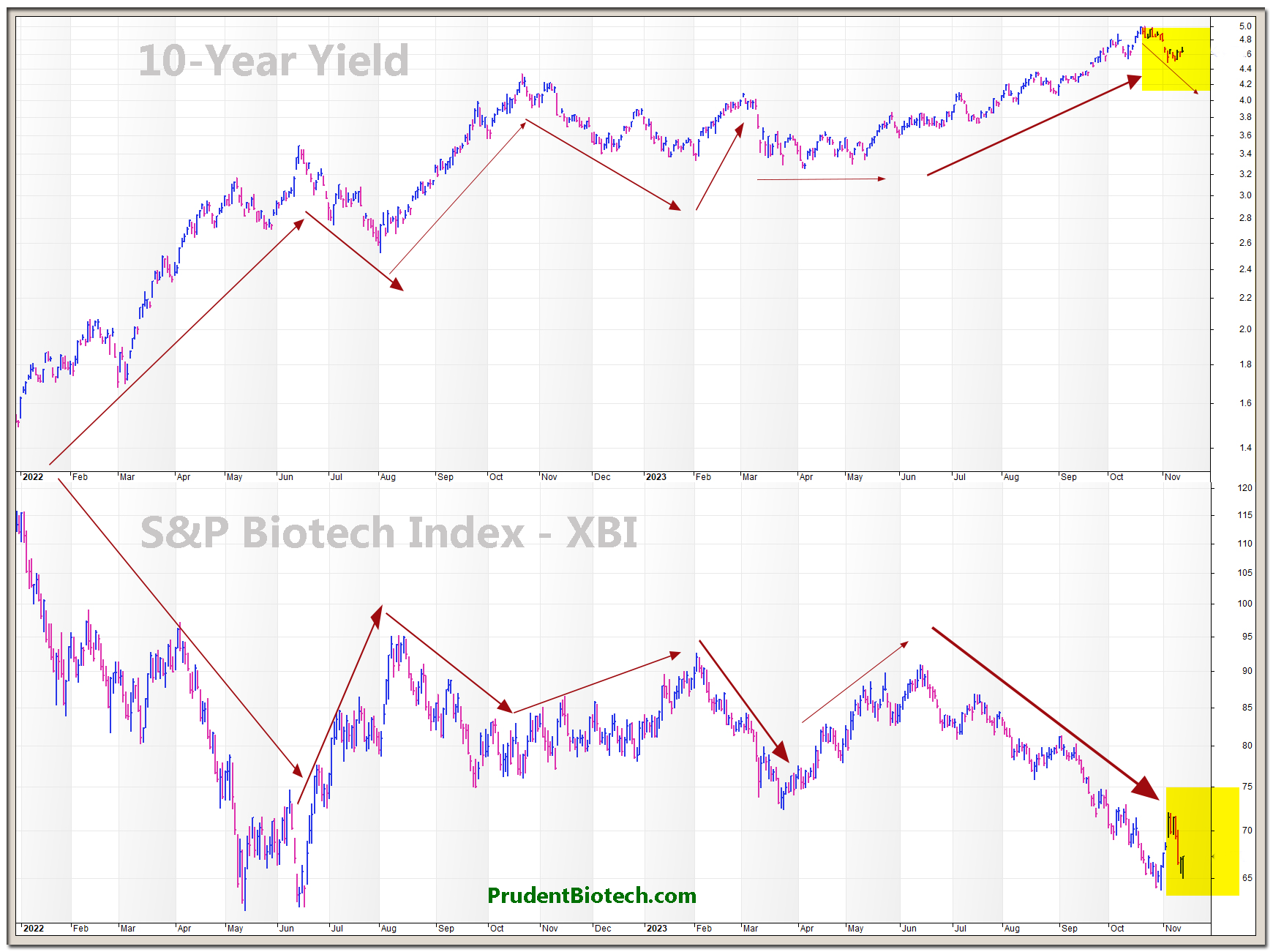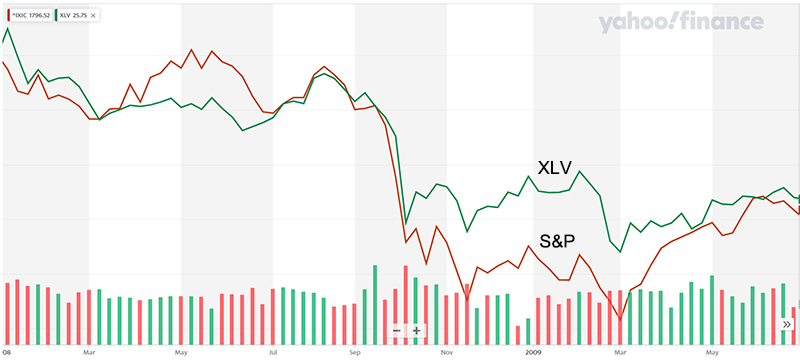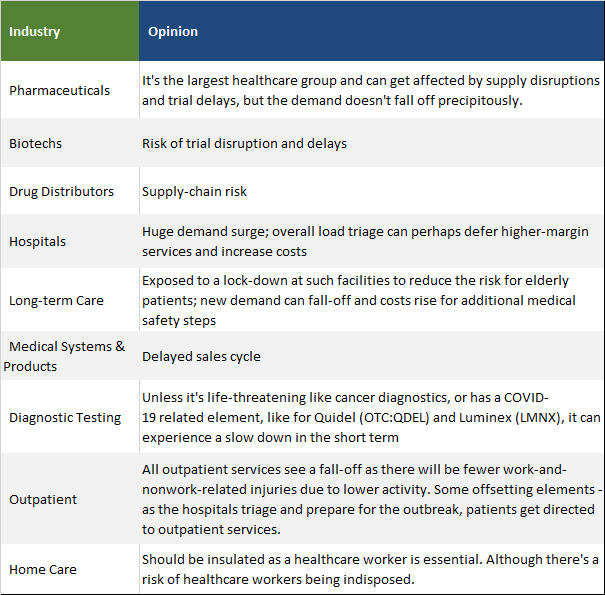Biotech Pulse
Biotech stocks have faced challenges since March, with both the NYSE Biotechnology Index ETF (NASDAQ:IBB) and the S&P Biotechnology Select Industry Index ETF (NYSEARCA:XBI) down about 2% for the year.
Though the broader market indexes are trading at new highs, biotech indexes are lagging and are at levels similar to the ones seen back in April 2020. The industry is stronger than ever, pushing new frontiers in science, and promising data releases driving M&A activity. Deal volume is strong this year with 17 deals up to April, compared to 38 deals in all of 2023, there have been no large deals above the $5 billion and the $10 billion levels.
We once again discuss the key factor that is holding back biotech valuations.
The 10-year Yield
The key factor affecting biotech valuations remains the 10-year note yield, with a strong correlation between its movement and biotech performance. In November 2023, our report "Biotech Stocks Ready to Roar" highlighted the potential for a decline in the 10-year yield to support biotech valuations, which proved accurate as the S&P Biotechnology Index surged over 50% by the end of February.
However, since March, IBB and XBI have declined due to a sharper rise in yield, which has increased from 4.20% at the beginning of March to 4.70% at the start of May.
The robust negative correlation between the yield curve's trajectory and the biotech industry's fortunes is presented below. The highlighted section showed a yield decline in November last year, with no corresponding gains for the biotech index at that time, which increased the confidence that higher valuations were ahead.
The 10-year yield is the preferred proxy for a risk-free discount rate for the long term. A rising yield raises the discount rate at which future corporate earnings are discounted. The rising yield poses challenges for biotech companies, as it increases the discount rate for future corporate earnings and diminishes the risk appetite for speculative stocks. The challenge is quite pronounced as emerging biotechs have neither revenues nor earnings to mitigate the impact of rising yields, but trade solely on the promise of their drug pipelines.
What Now for Biotech Stocks?
Biotechs have not participated in this year's earnings-driven market rally due to a rising 10-year yield.
Until there is a reversal in the rising trend to below 4.50%, the biotech group will continue to face challenges. Even stabilizing yields at lower levels will diminish concerns and allow trial results and pipeline prospects to drive biotech valuations.
Predicting a yield trend is difficult, but if yields stabilize or decline, biotech stocks should outperform. Recent reports showing stronger inflation than expected must be offset by more favorable data. Further progress on inflation may necessitate some economic weakening, as the benefits from supply chain normalization appear to have been largely realized. As real interest rates remain well in restrictive territory, some weakening in economic data will likely be forthcoming over the summer months.
The 10-year yield could quickly drop if evidence of lower inflation and a slowdown emerges during the second quarter, solidifying expectations for rate cuts in the second half of the year. However, a strengthening of inflation data can prove to be a major setback for the biotech group near-term.
While inflation data this week will set the tone for the market, we anticipate declining yields and year-end rate cuts in the second half. In the 2024 Biotech Bonanza Outlook and our model portfolio commentary, we noted that the second half for biotechs will be better than the first.
Holding on to stronger biotech companies with promising data releases can be rewarding, and while market timing is challenging, calibrating exposure and building out positions as opportunities arise could be prudent. While there can be inflation-induced volatility in the months ahead, we remain optimistic about biotech stocks' performance by year-end based on potential relief in the 10-year yield and rate cut clarity.
The article was first published on Seeking Alpha.



